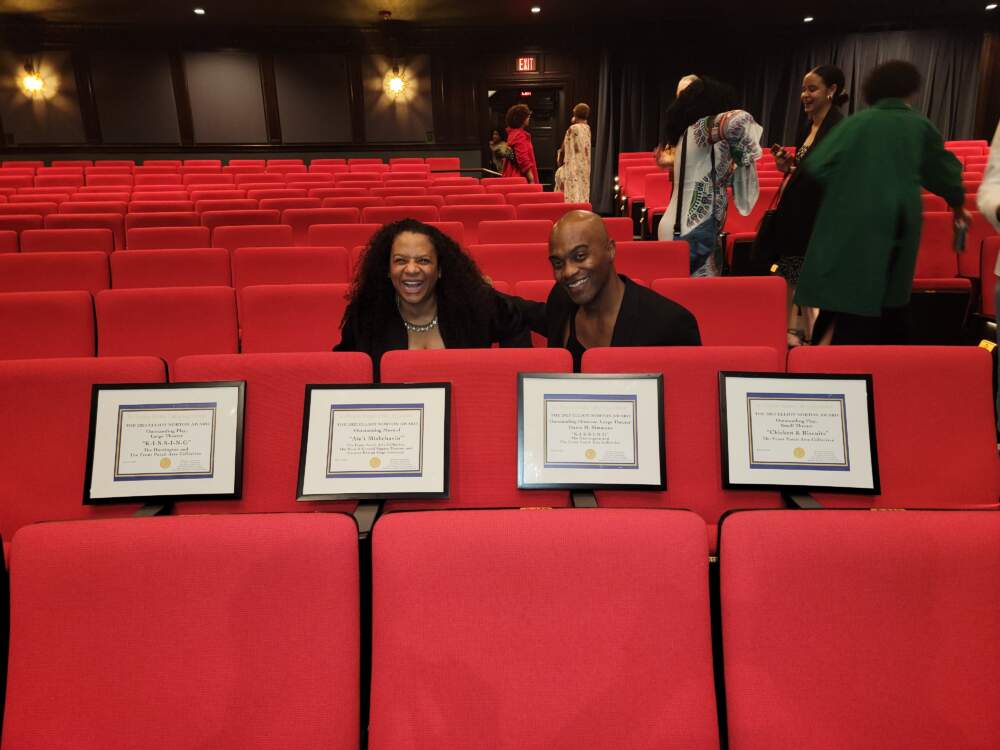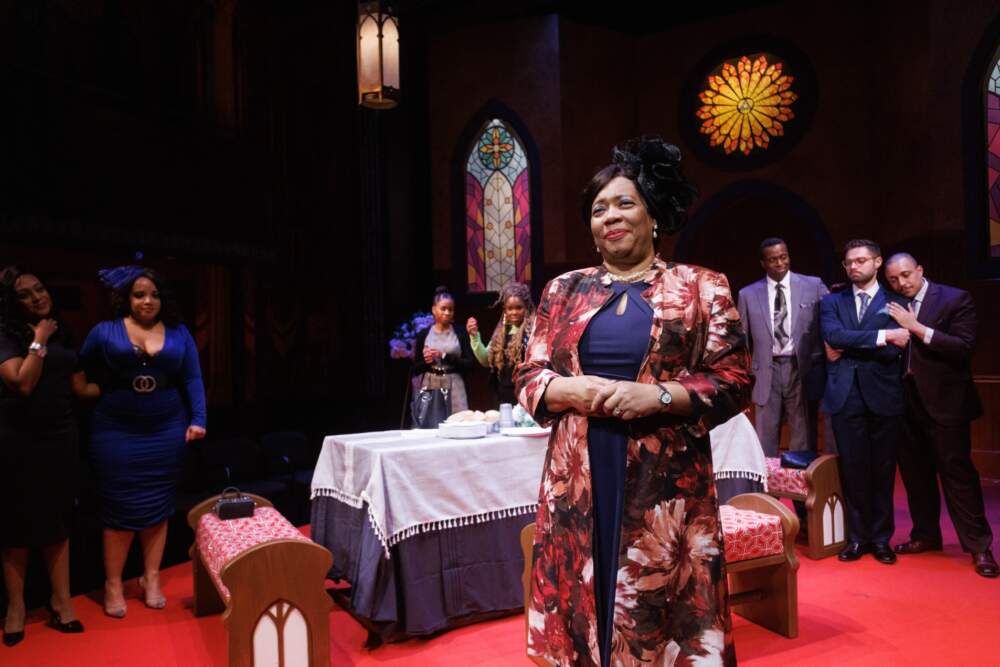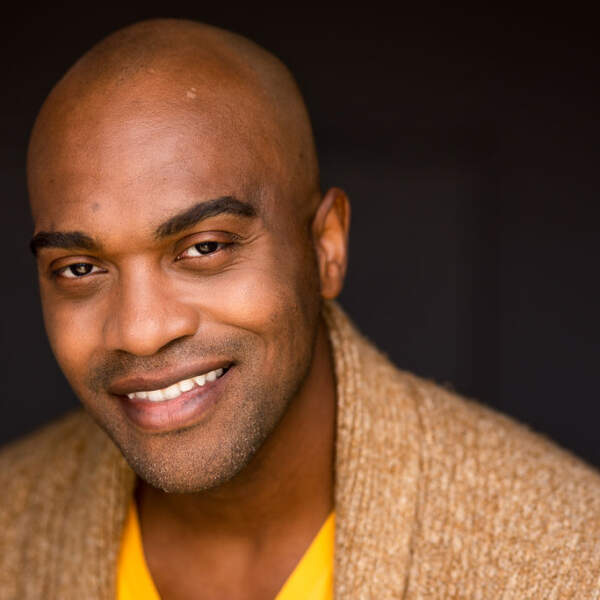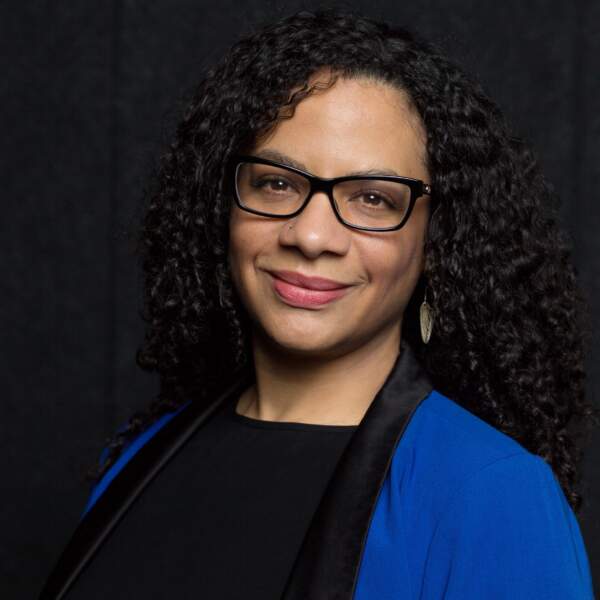Advertisement
6 Questions
‘We are our ancestors' wildest dreams’: Sharing stories from the African diaspora

Editor’s note: As part of our Juneteenth coverage, Cog interviewed Dawn Meredith Simmons and Maurice Emmanuel Parent, co-founders and co-producing artistic directors of The Front Porch Arts Collective, a Black theater company in Boston. Founded in 2016, The Front Porch is committed to advancing racial equity in Boston.
We talked about the relationship between Black theater and Black culture, what it means to advance racial equity in the theater and how they plan to recognize Juneteenth this year.
This interview has been edited for length and clarity.
Tell us about the relationship between theater and Black culture and activism.
Parent: Our ancestors have had their lives threatened for their efforts to make theater. People have been killed and maimed and harmed to make theater, and still have persisted — for us. The idea of gathering around a story, seeing ourselves reflected, goes far beyond entertainment.
When you go to the theater, you learn, you grow, you understand yourself better, you understand your community, your world, better. So, then think about that from an African diasporic place: When we are constantly under threat, we are constantly being relegated to the sidelines. Seeing stories about our communities and our narratives and our intersections is critical.
I think about the African Grove players, founded by a group of free Blacks who were doing Shakespeare. People went to their shows and actually burned down their theaters in protest. There's very little information about them to this day, but this is the legacy that we get to stand on. That’s the history we get to honor every day we do this work.
Simmons: We exist in the tradition of oral storytelling. What I love about live theater and part of what's so magical about what we do is that it is this physical embodiment of those oral traditions. We keep those stories alive or give them renewed life.

Do you recall the first time you attended a theater production that was more representative of the Black experience?
Simmons: One of my first experiences was a production of “Lord Have Mercy.” I’m from Buffalo, and this thing filled out a 1,500-seat theater for two weeks. Everybody who came out was dressed in their finest. They laughed the loudest. I remember the restaurants being full before the show, and after the show, and I saw a lot of my friends from the community.
We talked about it for weeks. And I think I'm always looking for that. It was the experience of being in the audience and talking back to those actors — having them talk back to us, having them right, smile, wink, all of that. That was so wonderful and powerful.
Parent: I found theater in my school, in my neighborhood. But it was years and years until I saw something that had an all Black cast. When I did, it was an arena stage production of a play called “Play On,” a Duke Ellington jazz and musical version of “12th Night” that’s not done very often, so it was really unique. I got to see it and my mind was absolutely blown — an all Black cast using Duke Ellington music to tell the story.
You’ve said that your mission is to advance racial equity. What does that mean in practice for The Front Porch?
Simmons: Advancing racial equity through theater has to do with the stories that we tell and whose experience we center in telling those stories. It has to do with paying more equitable wages. Part of the work is also pipelining new artists, making sure that people have opportunities that they would not ordinarily have, and that with those opportunities, we're bringing other people in to see those new artists, those new playwrights, directors, so that they can start to build a body of work, often by having The Front Porch on their resumé.
Part of what we’ve been trying to do with Front Porch is think about different ways of making theater so that we're not just replicating the same damaging systems, but that we're trying to produce a little more thoughtfully and mindfully. We can look at and interrogate budgets, casting choices, right? What are the decisions that our partners are making? What's the lens that they're looking through? Are they continuing to look through the same like white male, middle-age lens? How can we bring more ideas to the table? And so in expanding those ideas, we hopefully make a healthier, more holistic theater scene.
The folks that were emancipated [on Juneteenth] would never have imagined that there would be two of their ancestors sitting down trying to figure this out, that this is the problem of the day. How incredible. How incredible is that?
We are our ancestors’ wildest dreams. I think about that a lot. The fact that we are allowed to rest is radical.
Tell us about your name. Where did you come up with The Front Porch?
Parent: So, Dawn and I and another colleague were in an Au Bon Pain in Cambridge for hours and hours, going through name after name after name. And, eventually, the idea of a porch came to mind. In so many Black communities the porch is a multigenerational gathering place — you come out on the porch and you chill — in the city, somewhere more suburban or in the country. You come to the front porch, you meet your neighbors, you say, What's going on? That’s what we want our organization to be: a gathering place for folks.
How do you describe Juneteenth?
Simmons: I would explain it as the day that the last of the last of the freed Blacks in America found out they were actually freed. That’s my short version of it. My long version of it, is that it’s a day that was — what — three years in the making, because we were actually freed in 1863. But it couldn't be enforced until 1865.
And that [whole timeline] feels so indicative to me of how our people have been treated in this nation from time immemorial ‘til now. Better days are coming. But we’re always behind. Better days are coming. I hope you get the memo. It feels very on brand for how we are treated.
Can you imagine what that would be like to be somebody who was freed and knew it, but also knew that some of your brethren did not know yet? How do you get that message out? What did that feel like?
How will you recognize the holiday this year?
Simmons: We're recognizing the holiday, by taking the day off. The thing that our ancestors could not do is rest. And so I think taking that opportunity to do that right and to reflect right on where we've come. We’re two fairly young black professionals running a nonprofit organization in one of the toughest cities to run a nonprofit organization in the nation. How can we take a moment, also, to reflect on the good that we've done, how much further we have to go, what it's going to take to get there? But also, taking a moment to rest and reflect in a way that those before us couldn't. At least for me, that's, that's how I'm celebrating on behalf of The Porch.
Parent: Taking rest is an act of protest. We are our ancestors’ wildest dreams. I think about that a lot. The fact that we are allowed to rest is radical.
This segment aired on June 19, 2023.

